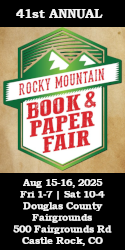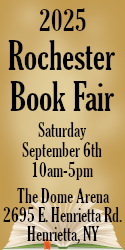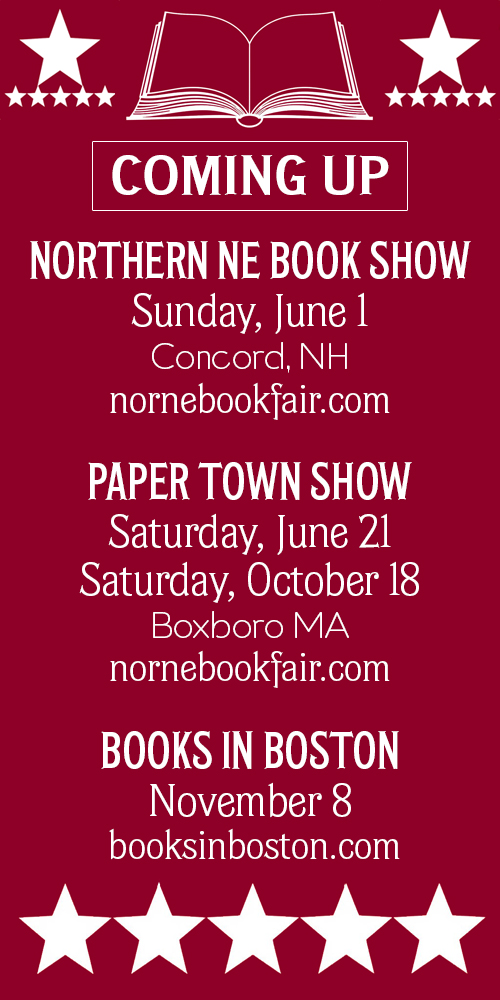Oh Jerusalem! (originally published December 2001)
Notes from the Antipodes
I recently bought a good collection of books to do with calligraphy. A very good collection, to tell the truth, the property of a former President of the Australian Society of Calligraphers. As I browsed amongst them, marveling at the skill of calligraphers and at the beauty of manuscripts, a passage in the introduction of one them caught my eye. “A good calligrapher must have the qualities of a warrior: he must plan ahead carefully but when he goes into action, he must be bold and decisive.” Or words to that effect.
Luckily for calligraphers, when they make a mess of things, the only thing spilled is ink. Warriors get to spill blood. Sometimes the enemy’s, but often their own. Small boys seldom think of this, when they dream of being knights in shining armor. I know I didn’t. As a boy, I sometimes dreamed of being a crusader, of riding with Richard the Lion-Heart and helping him deliver Jerusalem the Golden from the infidel hordes. After our successful venture, he would dub me knight, touching me with his sword on each shoulder as I knelt before him. “Arise, Sir Anthony.” I would journey home in triumph, clutching a splinter of the Holy Cross or the Holy Rood or the Holy Something, and spend the rest of my days delivering damsels in distress, slaying dragons and performing similar useful deeds of chivalry. (Before I went off to join the U.S. Cavalry, that is, to have fun shooting up Apaches.
That was during my “Boots and Saddles” phase.) No doubt many English boys of my generation – and for generations before me – had similar fantasies. How could we not? Chivalry was in our blood. Our national patron saint was St. George. We were the direct descendants of King Arthur and the Knights of the Round Table; we were steeped in the myths of Camelot. And Jerusalem – as any English boy knew – was really a part of England. It had simply been misplaced. So when we sang William Blake’s “Jerusalem” we knew the answer to the poet’s rhetorical question “And was Jerusalem builded here?” Of course it was. Right here, “ In England’s green and pleasant land.” I even knew where. Our English Jerusalem nestled in a fold of the Sussex Downs, on the coast, midway between Worthing and Brighton . What’s more, when I was eleven years old I became a Boy Scout. Each shoulder of my scout shirt sported a white label embroidered with blue lettering: “The Bishop of Jerusalem’s Own Scouts.” That felt pretty special. We were not merely the Bishop’s scouts, we were his Own Scouts. Like the King’s Own Light Infantry. Or the Queen’s Own Hussars. When we went to scout camps and jamborees, other scouts – the First Worthings, say, or the Fifth Brightons – would peer at our shoulders and wonder. Jerusalem? Were we foreigners? No, we came from Windlesham House School, actually. But the Bishop of Jerusalem (whoever he was) had picked us specially. The Pope had the Swiss Guard to look after him; the Bishop (wherever he was) had us.
To tell the truth, it was all very confusing. In geography we learned that the capital of Israel was not Jerusalem but Tel Aviv. But when you looked at the pretty colored maps at the back of your bible, you couldn’t find Tel Aviv. You could find Jerusalem all right but it wasn’t in Israel it was in “Palestine” or “The Holy Land” or “Judaea” or somewhere. And when you sang hymns “Jerusalem” sometimes got called “Salem” (which, as an abbreviation, I sort of understood) or “Sion” or even “Zion” (which I didn’t). And who lived in Jerusalem? I presumed the inhabitants were all Christians, and mostly English, but there was a rumor that Jerusalem was now full of Jewish people. Had the Crusades been a waste of time? Perhaps the Jewish boys at school would know. (Strange, that after all these years, I still remember the names of the Jewish boys: Harry Sado, Jonathan Blau, Manny Shinwell, Simon Henshall and Jeremy Morris). Once a week a short bearded man in a suit and carrying a briefcase came to give them Hebrew lessons in the school library. They studied Hebrew in the library with the rabbi while we were in the school chapel singing about Jerusalem. “Shinwell, do you live in Jerusalem?” “Of course not. We live in London, in Highgate.” (Manny Shinwell – a nice boy – was too modest to say that his grandfather was a Member of Parliament and “Father of the House.” This I discovered much later). The school library was not so different from the school chapel. It was officially called the Memorial Library, because it had the names of all the former pupils of the school who had died in the two world wars painted in gold lettering on a wooden panel. It was a beautiful shrine, shelved and paneled in light oak, and it was both airy and warm.
My favorite book - not to read but to gaze at - was The Seven Pillars of Wisdom by T.E.Lawrence. It was so handsome, with bold gold lettering on its shiny brown spine. A big solid book, nearly as big as the bible on the lectern in the chapel. Once or twice I dared to pick it up, laid it on the table, turned the pages. On the inside it was handsome too, full of striking pictures. Charcoal portraits. Men in uniform, men in Arab head-dresses. Strange. What was it all about? What or where were “The Seven Pillars of Wisdom”? Now that I am older, and have read The Seven Pillars of Wisdom I am still confused about the title. It sounds nice, but it doesn’t make much sense (I regret that I cannot delve into the matter here). In any case it is a great book. It fills a gaping void in English literature. Despite appearances, and with due allowance made for differences, it is our great English Crusader epic. It is England’s Song of Roland, its Romance of El Cid and its Jerusalem Delivered, all rolled into one. Its spirit is pure chivalry. Lawrence – “Lawrence of Arabia” – was a great knight, valiant, chivalrous and deeply versed in Crusader history. As a young history student, the topic he chose for his thesis was the influence of the crusades on the military architecture of Western Europe. In 1909, in order to research the subject properly, he tramped through the deserts and mountains of Lebanon and Syria and visited over thirty-six crusader castles (of which I have heard of at least one, the famous “Krak des Chevaliers”). His thesis entitled Crusader Castles (published posthumously in 1936 and rather scarce) helped to earn him a degree with first-class honors in Modern History. Much later, on 11 December 1917, Lawrence, by this time a colonel, joined General Allenby and his English army in their triumphant entry into Jerusalem. (Allenby chose to enter the city, symbolically, on foot). Lawrence had not been directly involved in the regular campaign to take Jerusalem but the historic occasion moved him deeply. “For me,” Lawrence wrote, “it was the supreme moment of the war.” Like the Crusaders before him, he had reached Jerusalem and seen it freed from the infidel. (Lawrence went on to help take Damascus, capital of Syria, ten months later. Here he met the Major-General Charles Chauvel, the Australian commander of Australian forces in Syria and Palestine. The Australians had distinguished themselves in the campaign, particularly the dashing Australian Light Horse which had charged and routed the Turks at the Wells of Beersheba, to the south of Jerusalem. It was one of the last conventional cavalry charges of modern warfare in the West.) Lawrence of Arabia was no conventional Crusader. His comrades-in-arms, levied by the Emir Faisal, were not Christian knights on horseback, but Arab tribesmen on camels. Faisal’s objective was to drive the Turks out of Arab lands, which for centuries had been part of the Ottoman Empire. And Britain and France saw fit to support him, with money and arms and Colonel Lawrence. No doubt some Muslims saw it as an unholy alliance: it was wrong for Muslims to join with Christians to wage war on other Muslims. For Lawrence, the situation was even more fraught with ambiguity. While he fully supported the Arab revolt, and the desire of the Arabs for independence, he knew that the Allies, once the Turks were defeated, had no intention of allowing the Arabs full independence. By the Sykes-Picot agreement, signed in 1916, France would maintain control of Syria and Lebanon, while Britain would control Palestine and Mesopotamia (Iraq). Furthermore, the Balfour Declaration (1917) had promised a national home for Jews in Palestine. Lawrence, who was a man of honor, found himself in an intolerable position. While forced to persuade his Arab army of the Allies’ good faith, privately he knew that Britain and France – those great Crusading nations – had no intention of handing over all the spoils of war to the Arabs. The subsequent establishment of the British and French mandates was an affront to Lawrence’s sense of chivalry. He did not live to see the establishment of the state of Israel, but he was reasonably confident that the rights of indigenous Palestinians would be safeguarded. Which, in the event, they were not. At least, not in full measure.
In 1939 the clause in the Balfour Declaration assuring Palestinian Arabs of their rights was dropped as “unworkable”; in 1947 the British surrendered their Palestinian Mandate to the United Nations, who then voted in favor or partitioning Palestine into Jewish and Arab sectors. But, with President Truman showing ambivalence on the question, there was no real political will, or military muscle, to enforce the vote. Who remembers now that Count Folke Bernadotte, who was appointed by the U.N. to mediate in Palestine and who produced a partition plan, was murdered in 1948 by Jewish terrorists? An Arab state of Palestine was anathema to many Jews then, just as it is to many Jews now.
There are remarkable similarities between the present Jewish state of Israel, and the medieval Christian Kingdom of Jerusalem, established by the Crusaders. Here are two small states imposed by non-Muslim outsiders on a reluctant, long-established Arab population and maintained by force of arms. Both are hemmed in by Muslim antagonists, who vastly outnumber them and whose greatest desire is to see them gone. Both are protected and provisioned by great powers overseas. In the case of the Crusaders, the Pope and his Christian vassals in France, Germany, Italy and England; in the case of Israel, by the United States. In the end, the Kingdom of Jerusalem crumbled – along with the other Frankish kingdoms and fiefdoms of the Middle East. Fortress Jerusalem, in a hostile land, was ultimately untenable.
Steven Runciman’s three-volume History of the Crusades (Cambridge, 1951) is still the standard work. It tells you all you could ever want to know about the crusades – and then some. In particular, Runciman takes pains to show things from the Arab perspective, to empathize with them even. Empathy is good. Let us reflect for a moment. How would we like it if an army of religious zealots marched into our land, long settled by us, claiming that it belonged to them and their God, (really our God too, but slightly different) and proceeded to dispossess us by force? Runciman shows too that the Muslims who opposed the Crusaders in the Middle East, far from being a homogeneous unleavened lump of Islam, were many distinct and often rival groups – Mamelukes, Saracens, Bedouins, Kurds, Turks, Assassins with sundry tribes and sub-groups – as likely to be warring amongst themselves as against the Crusaders. He shows too how far in advance, intellectually and culturally, the Arabs were compared with their Crusader adversaries. While Northern Europe stumbled around in the so-called Dark Ages, Arab or Muslim civilisations – from Spain in the West to Persia in the East – had achieved remarkable things in science, literature, art and architecture. The Crusaders were, by comparison, a somewhat uncouth and barbarous rabble. Most significantly of all, Runciman shows clearly that the Normans and the other Crusaders had no monopoly on chivalry. The Arab armies were led by many noble and valiant knights, none more celebrated than the Kurdish warrior Saladin. Saladin was admired and respected by his Christian enemies, for his valor, his integrity and his compassion. Even Dante, who consigns the prophet Mohammed to the nether depths of the inferno, reserves a special and honored place for Saladin amongst the worthy unbelievers.
My favorite story about Saladin is probably apocryphal. I must have heard it first at primary school. Richard the Lion-Heart is bragging to Saladin about his mighty broadsword, how strong and powerful it is compared to the puny Arab scimitar. “Indeed,” says Saladin, tossing a silk handkerchief into the air. “But can it do this?” With a deft slash of his scimitar, he slices the silk in two. “Now you try.” When Richard swipes at another handkerchief, it wraps round his broadsword, fouling the blade and remaining uncut. “You see,” says Saladin, “might is not everything.” This tale, like so many others, focuses on the differences between Christian and Muslim. The Cross versus the Crescent; the Sword versus the Scimitar (please note how the weapon mimics the religious symbol). But the reality is that men on both sides behaved in remarkably similar ways, often with chivalry and often without. Who is not appalled by the carnage perpetrated by the knights of the First Crusade when in 1099 they stormed Jerusalem? The Crusaders massacred every human being they found inside the city – men, women and children, Muslim or Jew . About 50,000 people all told. The streets literally ran with blood. The glorious liberation of Jerusalem! And so it goes. In war, it seems, no one side has a complete monopoly of right or virtue.
It is a little-known fact that a part of Australia was seriously considered as a Jewish National Homeland. (It came closer to realisation than the better-known alternative in Uganda, which was violently opposed by white settlers). The whole story is documented in Leon Gettler’s An Unpromised Land (Fremantle, W.A. 1993) – the title taken from the book by Isaac Steinberg: Australia – The Unpromised Land (Gollancz 1948). Russian-born Dr. Isaac Nachman Steinberg was a member of the Freeland League for Jewish Territorial Colonisation and one of the foremost advocates of an Australian Jewish homeland. After much preliminary diplomatic to-ing and fro-ing, in 1939 Steinberg was invited by the Australian government to visit Australia, to lobby for support and to have a look at the proposed area – a region in tropical North-West Australia called the Kimberley. The Kimberley is about as far from the densely-populated South-East corner of Australia (Sydney, Canberra, Melbourne) as it is possible to be, so the Jews would have presented little threat to established interests (and anti-Jewish people). The land was vast and rugged, but in many places fertile and well-watered. Steinberg was immensely impressed. He found the country teeming with life and possibilities, and the town of Wyndham a suitable base for a new Jewish city. Gettler writes: “Like Moses standing on Mount Nebo and gazing upon the Promised Land, Steinberg knew his jouney had come to an end. He may have seen himself as a modern-day Moses, leading his people into this Promised Land where they could renew their links with their fore-fathers and forever rid themselves of the shackles of spiritual slavery.”
Alas, nothing came of Steinberg’s noble vision. In particular, opposition from Jewish Zionists scotched his plans. They feared that the British, who were reluctant to antagonize the Arabs by letting more Jews into Palestine, would direct Jewish refugees to the Kimberley instead; worse, the British might even renege on a Jewish homeland in Palestine altogether. A mighty opportunity was thereby missed. It is fascinating to speculate what this antipodean Jewish homeland might have become; whether the sleepy town of Wyndham would have become the new Jerusalem of the South. And – as a footnote – would the dispossessed indigenous aborigines now be demanding their land back?
I discovered that the Bishop of Jerusalem who conferred his blessings and patronage on our school scout troop was an alumnus of the school. I have no aspirations to be a bishop but I still have dreams of being a knight, of doing courtly and chivalrous deeds. Perhaps those of us with the surname “Marshall” have a pre-disposition to chivalry. In the field of battle, we command; in civilian life we are the good guys, in the white hats, charged with upholding law and order. According to my uncle our family motto is a proud one: “Dieu je ne puis, Roi je ne daigne, Marechal je suis” (God I cannot be, King I do not deign to be, I am a Marshall). And one of our forebears was that flower of chivalry, Sir William Marshal (1146-1219). William it was who, when informed by the burghers of Calais that his son had been taken hostage and would be killed if William and his troops did not abandon the siege, replied that they could do what they liked with his son “So long as I have the hammer and the anvil with which to forge still more and better sons.” The burghers of Calais were so impressed with this retort that they let the boy go. William later made the journey to Jerusalem, in accordance with a vow he had made. There, fighting the Saracens, he covered himself in glory.
In modern times, there is no need physically to go to Jerusalem. Jerusalem is a symbol. Blake wrote: “I shall not cease from mental strife, nor shall my sword sleep in my hand, Till I have built Jerusalem In England’s green and pleasant land.” Which is the whole point. While Jerusalem is certainly a physical reality, a holy city revered by Muslims, Jews and Christians, with potent religious and historical significance, it is also an ideal. Not a place to be conquered or delivered, or constructed even, but an ideal to be striven for. “To build Jerusalem” is to achieve a just and caring society, peace and harmony, wherever you are. And on the individual level, inner peace and spiritual wholeness. Christian knights often missed this point. For them, battering the Turk or the Arab to a pulp was sufficient. So long as Jerusalem was not in infidel hands - mission accomplished. More thoughtful and more sensitive knights knew – and know – that the mission is never accomplished. Life is an unending quest, a search for the new Jerusalem, for the Holy Grail, for the Promised Land, for the Earthly Paradise – which is always just out of sight, over the next hill, round the next bend. It is not the arriving at Jerusalem which is important, so much as the journeying there.
Note: Anthony Marshall, the former owner of Alice’s Bookshop in Melbourne, Australia, a member of the Australian and New Zealand Association of Antiquarian Booksellers, and author of Trafficking in Old Books (Melbourne 1998) and Fossicking for Old Books (Melbourne, 2004) is now living in Freiburg, Germany.


























